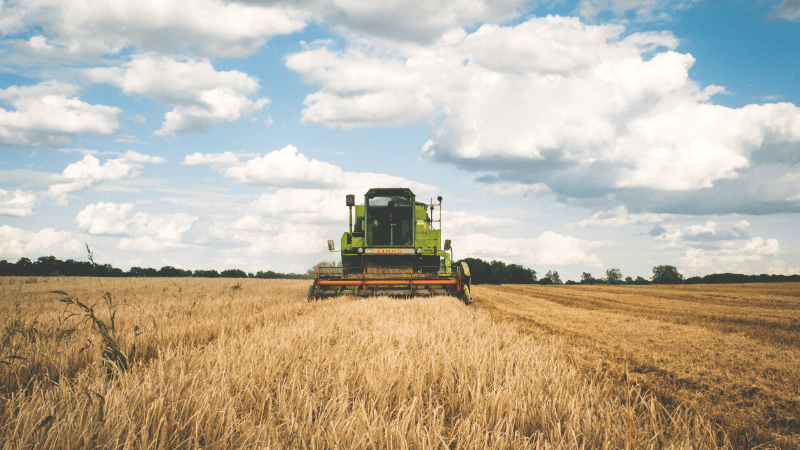What is Farming Technology?
Farming Technology, or Agricultural technology, in its simplest terms, is the future of farming. It is about revolutionizing the efficiency of farms to improve yield and profitability.
Farming Technology is about improving products, processes, and services through the Agricultural industry. It includes new and emerging ideas such as sensors for data collection, development of precision agriculture, and even the use of automation and robotics.
Automation and Biotechnologies also play a huge role in the future of farming with new and exciting developments happening all the time.
What courses are available?
Universities and colleges in Ireland are offering courses in the following subject areas:
- Environmental Management and Agriculture – the study of plants and animal types associated with agriculture and aspects such as soil, ecology, plant and animal physiology, crops, practices, genetics, and microbiology.
- Agriculture and Environmental Management – the study of the skills and practices necessary for the agricultural and environmental sectors.
- Agriculture – the study of farm management, environmental protection, food safety, animal welfare, operation of machinery, and business management.
- Horticulture – the study of plant identification and use, soil science, work practices, plant protection, plant propagation, and plant science.
- Sustainable Horticulture/Permaculture – the study of the science of land management and human activity for sustainability and efficient ecosystems.
Studying Farming Technology in college
Courses related to Farming Technology are aimed at candidates who wish to build their knowledge and skills to work within the Agricultural Industry developing and managing new technologies that will benefit the industry now and in the future.
Candidates who would like to study further in Farming Technology commit to farming and food production, especially with the technology that helps to enhance effectiveness, sustainability, and reliability of current processes and machinery. Technologies within the Agricultural Industry can range from computer systems and networks to data management and sensors and even machinery systems for precision agriculture where computers are used to determine the exact needs of the crops and soil so that these needs can be met and the crops can thrive.
It is common within Farming Technology courses to expect to spend time attending lectures and tutorials and you may be required to undertake independent study. There may be laboratory or fieldwork practicals depending on the course chosen. Some courses will be more science-based and offer practical learning experiences and site visits, often alongside professionals of the industry.
Assessment may be a combination of continuous assessment or end-of-trimester written examinations as well as some project work.
Career options
Farming continues to play a critical role all over the world with the need for food and food products growing with our ever-increasing populations.
Farming and business management skills allow for several career options within the agribusiness sector as well as landscaping, gardening, and forestry which are all excellent choices for anyone who enjoys an active career with practical work out in the open air. It is not unusual to start at an “entry-level” job and work your way up with experience or perhaps further study in related industries that could be beneficial such as Environmental Science or Information Technology.
Courses in Farming Technologies open up career fields in many industries from Teagasc (the agricultural advisory body), Farming Cooperatives, Government Departments, Banks, Charities, Environmental and Conservation Bodies, and Commercial Agri-consultancies. Other jobs that require a higher degree of responsibility will typically require further education, training, and/or experience to qualify for – such as research or more specialized machinery and engineering.
Related jobs include:
- Production agriculture
- Environmental Protection
- Consulting
- Equipment Manufacturing
- Agri-Tech
- Biochemist
- Environmental Engineer
- Bioinformatics Scientist
- Agronomy Sales Manager
- Agricultural Engineer
- Food Scientist
- Animal Geneticist
- Agricultural Operations Manager
Further study
There are also excellent graduate study opportunities to specialize in Environmental Technology, Food Engineering and Sustainable Energy, and Green Technology.
You may also be interested in Product Design and Manufacturing if you have an interest in designing and watching your ideas and technologies brought to life.
FAQ
How has Technology affected Farming?
The development of technology over time has allowed for higher crop productivity and a reduced impact on the environment and natural ecosystems. Technology attempts to solve problems that arise in every industry and advancements in Farming Technology have allowed for a decrease in the use of water and chemicals such as fertilizer and pesticides, which in turn helps to keep food prices down for the consumer and the environment safe for everyone.
Are there any particular qualities you need to study Farming Technology?
Farming Technology requires a passion for the industry and a lot of hard work. It is an industry where you will spend a lot of time outdoors in a variety of weather. Creativity and planning are important skills to have. You should be able to work independently but also as a part of a team and be able to communicate clearly and effectively. Fieldwork can require physical stamina and an understanding of common farming practices and policies.
Where can I study Farming Technology?
Explore your options here
Did You Know?
- The Agriculture Industry is one of the largest employers in the world with an estimated 28% of the world’s population working in the industry.
- Goats were the first animals to be domesticated.
- The average size of a farm in Ireland is just 81 acres.
- Cows outnumber humans in Ireland, in 2016 Ireland had 6.6 million cows and 4.7 million people.












Comments